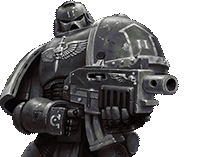I don't know why you find what I am saying so controversial, James. Rules and GM decision work together in any RPG game outside pure free-form. Even the Amber game that did away with dice or any other random method still uses rules for decisions. Are you arguing that they are ultimately uneeded? If so, why not just play a free-form game? If not, then what role do you propose they should play?
I am trying to wrap my head around you justifying feats and the entire If You Don't Have X You Can't Do Y game design. Am I misunderstanding you because at every turn you have defended it in my eyes?
You are the one who keeps bringing up feats, not me. I even made it clear I don't like systems that stop you from doing something obvious because you lack a trait in your sheet or something. I am arguing that DM decisions don't need to be done outside of rules, but can use them as a framework and reference.
Here is the simplest example I can think. If your PC is driving a car at a high speed, it is dark and raining and he must make a turn right as a truck comes in the opposite direction, how do you deal with that in GURPS? Here are a few things the GM could do to represent this situation, going from interacting the least to interacting the most with the rules present in the system:
- A flat percentage roll (say 20% chance of success).
- A DX roll to avoid disaster.
- A driving skill roll.
- A driving skill roll with a big penalty given all the stacked odds against the driver.
- As above, but each problem (darkness, rain, speed, etc) is an independent penalty, which might be further modified by advantages and what not such as night vision.
- As above, but also using some of the frameworks from the rulebook such as the speed penalty table.
And we could go on by considering outcomes as well. My point is that having rules to deal with this doesn't stop the GM from deciding how things go, but might help him make a better decision, and help the players to know what to expect from the game.






















